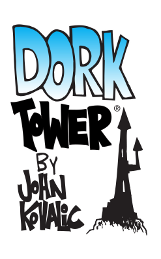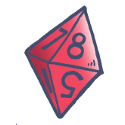Episode 47: An Occasional Underused Wendigo
July 12th, 2013 | Robin
 We start in the Gaming Hut by contemplating the massive Call of Cthulhu campaign. What drives the love for this classic cornerstone of roleplaying obsession?
We start in the Gaming Hut by contemplating the massive Call of Cthulhu campaign. What drives the love for this classic cornerstone of roleplaying obsession?
In Ask Ken and Robin, Leó Páll Hrafnsson wants to know what the deal is with the famously lost Ninth Roman Legion.
Grab the remote in the Television Hut as we look at structure in TV shows, from their evolution to their application to roleplaying.
Then our epic Consulting Occultist series on the Nazi Occult explores the Thule Society, wealthy right-wing imaginers of lost continents who built an anti-Communist goon squad only to see it morph into the Nazi party.
Podcast: Play in new window | Download















I had to laugh during the portion near the end about how Thule is unreclaimable and anyone messing with it is under an unsavory shadow. Maybe someone should have told Rich Baker and Sasquatch Game Studio: http://www.kickstarter.com/projects/809579963/primeval-thule
Or, you know, Tool.
Bibliography
TV Series:
Alias
Buffy the Vampire Slayer
Deadwood
General Hospital
Guiding Light
Hannibal
Hillstreet Blues
Homicide: Life on the Street
L.A. Law
Lost
Sons of Anarchy
Star Trek
Supernatural
Treme
True Blood
Twin Peaks
Veronica Mars
The Wire
X-Files
Movies:
The Last Legion by Doug Lefler
Books:
Michael Blake – Dances with Wolves
Joseph Conrad – Heart of Darkness
James Fenimore Cooper – Last of the Mohicans
David Drake – Ranks of Bronze
Nicholas Goodrick-Clarke – Black Sun: Ayran Cults, Esoteric Nazism, and the Politics of Identity
Nicholas Goodrick-Clarke – The Occult Roots of Nazism: Secret Ayran Cults, and Their Influence on Nazi Ideology.
Kenneth Hite – The Nazi Occult
Robert E. Howard – Worms of the Earth
Robert Jordan – Wheel of Time series
H.P. Lovecraft – At the Mountains of Madness
H.P. Lovecraft – Call of Cthulhu
H.P. Lovecraft – The Case of Charles Dexter Ward
H.P. Lovecraft – The Whisperer in Darkness
China Mieville – Kraken
Louis Pauwels and Jacques Bergier – The Morning of the Magicians: Secret Societies, Conspiracies, and Vanished Civilizations
Jerry Pournelle – Janissaries
David Simon – Homicide: A Year on the Killing Street
Various – Madness on the Orient Express feat. Ken and Robin
Karl Edward Wagner – Legion From the Shadows
Authors mentioned
Ramsey Campbell
Joscelyn Godwin
Peter Levenda
Friedrich Neizche
Third bibliography in a row, forgot a html code, so I’ll blame it on fatigue. Hopefully, Ken will loan me his Time Machine again to go back and correct.
Thanks- I enjoyed that. The Ninth Legion speaks to my interests. I think I’d date it’s popularity in fiction from Rosemary Sutcliff’s Eagle of the Ninth, just to add another to the bibliography.
Would it be tasteless to plug myself here? It’s relevant, I promise. The RPG setting I wrote, Ninth Legion (which involves their descendants carving out an Empire in a somewhat Celtic otherworld) should be published by Arc Dream later this year.
“Just a soap opera with fights” – so how does one get beyond that, and what are the options?
I found it quite humorous that, in an episode where you discuss epic Call of Cthulhu campaigns, including the polar campaigns, that wendigos are only mentioned later in conjunction with Supernatural.
So it sounds like we should take the advice of our deranged siblings and “Be Cruel To Your Thule”. 🙂
I will stand up for Hill Street Blues, though not for Bochco’s later works. To my eye, he and his team did a great job of pacing the individual episodes, making sure that each 45-minute-hour had 1 or 2 complete stories and that the chunks of the continuing stories in each individual episode were dramatic units. You wouldn’t just see “here’s a catchup scene of Henry dealing with his girlfriend’s legal troubles” and “here’s another scene of Frank and Joyce complaining about their love life”; instead, you’d get a mini-story about Henry in 3 scenes or Frank and Joyce discussing the main events of the episode and disclosing further complaints about their love life. The effect of the continuing stories was to give an appropriate pace to events that would unfold over the course of months–the standout being Frank’s slow relapse into drinking in, I think, Season Six.
The problem with “soap operas” isn’t primarily that their stories unfold over time; it’s that they’re so often terrible, in part because every single character arc has the emotional volume jammed all the way up to 10 in a never-ending game of “top THIS!”.
Another reason for classic episodic shows was that episodes would very often be shown out of order, especially on repeats and syndication. Those broadcasters wanted to catch channel-surfers, not confuse them with a show that they’d need to have seen some of before.
A TV format that’s little-known in the English-speaking world, but which I think could usefully be borrowed and that has a lot in common with gaming, is the telenovela. The main difference from soap opera is that it’s explicitly a limited run, usually to about 120 episodes shown 3-5 per week, which means that you don’t need as many catch-up segments you do with a weekly or multi-season programme; the telenovela tells a single story and then ends, which means that the story can be fully planned out when the show begins, rather than the usual US style of “we’ll keep making episodes until people stop watching them” which nearly guarantees that any show will end on a poor last season.
From a role-playing point of view this seems to map well to an extended adventure that’s long enough for you to get to know the characters, but still with a defined ending, something that many extended home-written campaigns tend to lack (at least in my experience). I get the impression that Night’s Black Agents is intended to some extent to be played this way, holding out the promise of actually ending the vampire threat; does that seem reasonable?
Possibly worth adding to the bibliography: the Masks of Nyarlathotep Companion preview PDF, free from YSDC.
A great deal of British television is done in limited runs (“series”, rather than seasons), and they’ve were willing to assume an audience that watches all the episodes in order decades earlier than the US did. Even in the early 1960s, Doctor Who had multi-part adventures and an increasingly tangled episode-to-episode continuity.
While the Wendigo bit was pretty good, I would have titled the episode with my favorite pull quote :”Secret Society of Rich Jerks.”
Inspired by this episode asking about a person, here’s a “Ask Ken and Robin” question about a historical figure:
What’s the deal with Ignatius Donnolly? (I only just learned, for instance, he was a Congressman, among other odd pursuits)
My wife and I are going through ‘Veronica Mars’ (again) at the moment, and I am once again impressed with how well the show is put together. For me it is one of television’s high points.
I would like to ASK KEN AND ROBIN: what do you think about the use of an ‘in world’ narrative voice when writing rules and background for gaming books (as in ‘Deadlands’ or the ‘Serenity RPG’)?
I guess it might be useful when trying to get across the flavour of a unique gameworld, but usually I find it jarring and unpleasant to read (a notable exception, of course, is the light-Vancian tone of that excellent volume, ‘The Dying Earth RPG’). It does seem to be a popular style, though.
Why and when should this technique be used, and how can it be done well?
Tom.